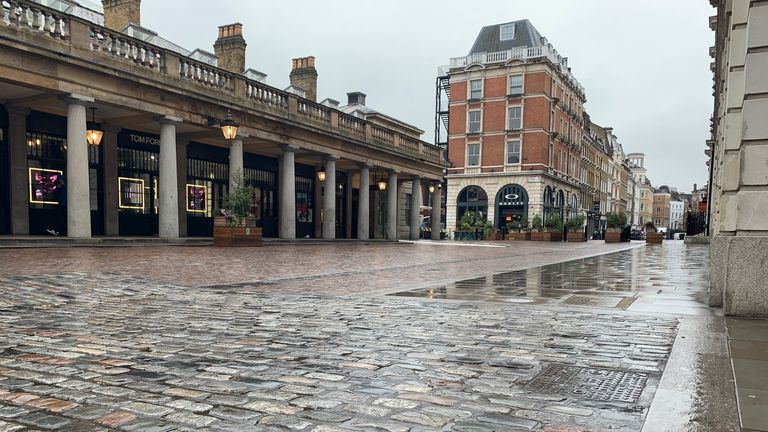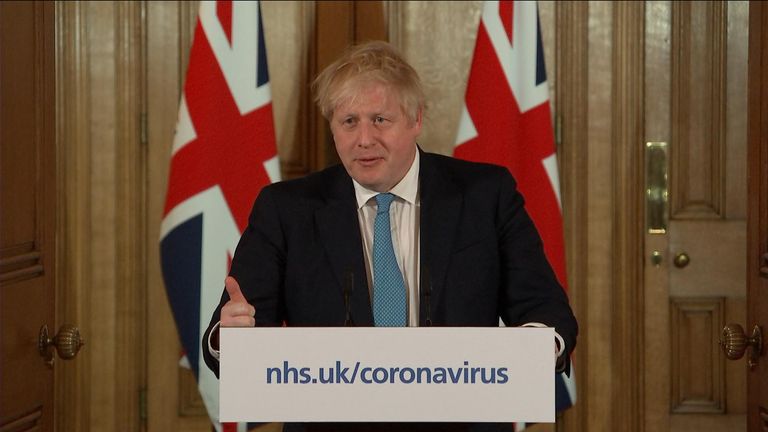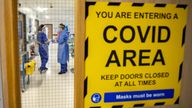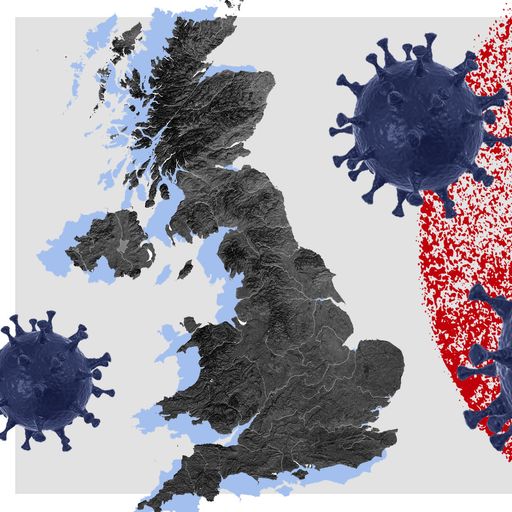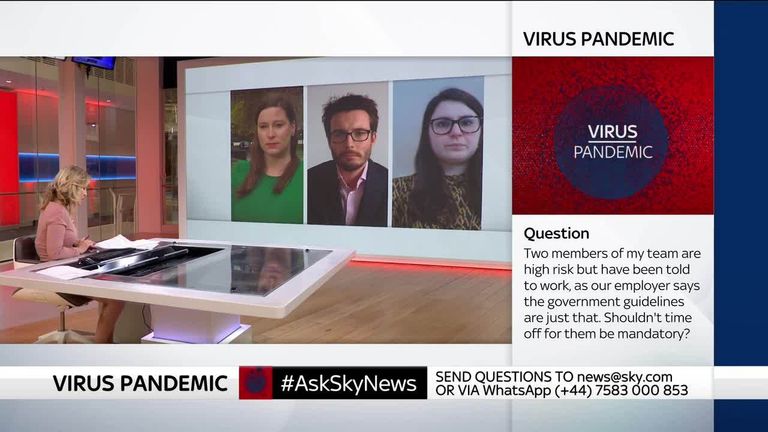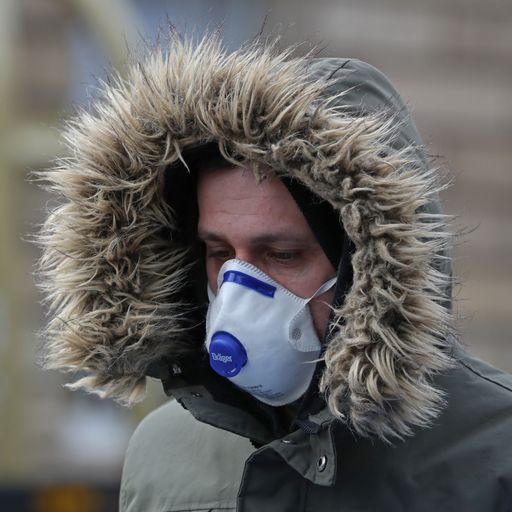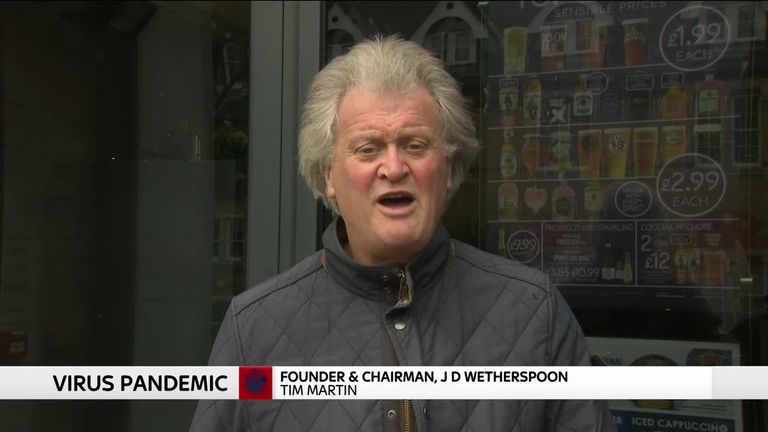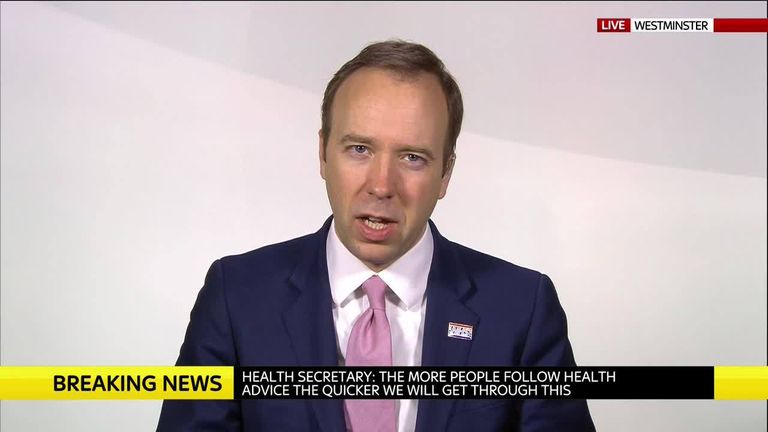Coronavirus: Social distancing needs to be in place for 'most of a year', say government advisers
The advice says the triggers for the controls to be imposed or lifted could be set at a level of UK nations and regions.
Friday 20 March 2020 19:35, UK
Social distancing restrictions need to be in place for "at least most of a year" to control the spread of coronavirus, according to experts advising the government about the pandemic.
Evidence from the Scientific Advisory Group for Emergencies (SAGE), which is advising ministers on the UK's response to the coronavirus pandemic, has been published by the government.
It comes after Prime Minister Boris Johnson said on Thursday that the UK could "turn the tide" against COVID-19, the disease caused by the coronavirus, in 12 weeks.
"I cannot stand here and tell you that by the end of June we will be on the downward slope," he said.
"It's possible but I simply can't say that for certain.
"Of course not, we don't know where we are, we don't know how long this thing will go on for but what I can say is that this is going to be finite, we will turn the tide and I can see how to do it within the next 12 weeks."
However, evidence from SAGE has cast some doubt on this claim.
It said that while the severity of the social distancing measures could alternate during the period, the "stricter" provisions would need to be enforced for at least half of the year.
A report by the scientific pandemic influenza group on modelling states: "It was agreed that the addition of both general social distancing and school closures to case isolation, household isolation and social distancing of vulnerable groups would be likely to control the epidemic when kept in place for a long period.
"It was agreed that a policy of alternating between periods of more and less strict social distancing measures could plausibly be effective at keeping the number of critical care cases within capacity.
"These would need to be in place for at least most of a year.
"Under such a policy, at least half of the year would be spent under the stricter social distancing measures."
The advice, dated Monday, says that the triggers for the controls to be imposed or lifted could be set at a level of UK nations and regions.
More stringent measures could be enforced in London, where the disease is most prevalent, it adds.
:: Listen to the Daily podcast on Apple Podcasts, Google Podcasts, Spotify, Spreaker.
The measures that would need to remain in force for a "long period" include general social distancing, school closures and household isolation, the advice says.
It would take two to three weeks for the impact of the measures to be felt in intensive care units, it added.
The document also emphasises the need for members of the public to follow the government's advice on social distancing, saying critical care facilities will likely be "overwhelmed" otherwise.
However, the scientists still said it was "unclear" if the action taken so far would "curtail the epidemic" by halting its spread.
Meanwhile, separate advice from the Scientific Group on Behaviour and Communications has set out the weight of pressure on the PM.
The group said that public disorder in epidemics is "usually triggered by perceptions about the government response".
But they did say that "large-scale rioting is unlikely" and there is a greater chance of acts of altruism predominating, which they said the government could "promote and guide".
The police should take the role of "support rather than control", the experts advise, removing the risk to order if police actions were deemed to be excessive.
:: Listen to All Out Politics on Apple Podcasts, Google Podcasts, Spotify, Spreaker
Ministers have been told to "provide clear and transparent reasons for different strategies" with "clear expectations on how the response will develop" in order to minimise the chances of this happening.
The government is advised to cultivate a sense of collectivism, with messaging reinforcing a sense of community and that "we are all in this together".
But they warned that household isolation and school closures will have a greater impact on poorer families.
"For poorer families, loss of income and increased household bills (heating, electricity, food delivery etc), will occur concurrently with loss of social services provided through schools (free school meals, after school clubs etc)," they said.

